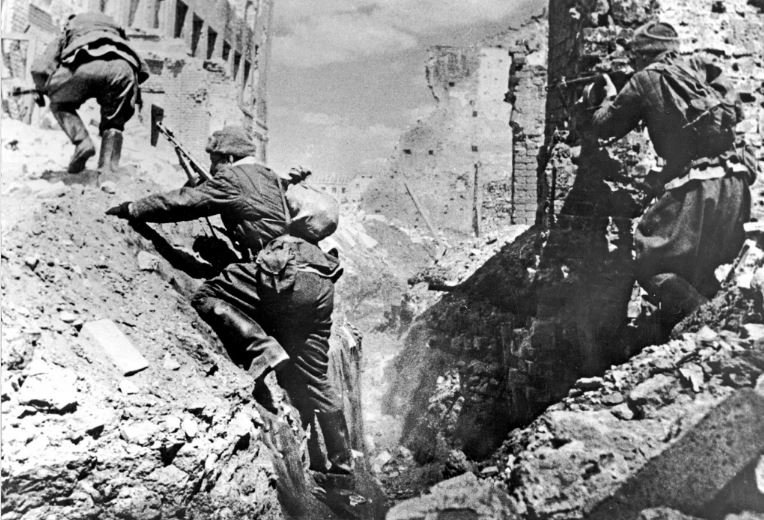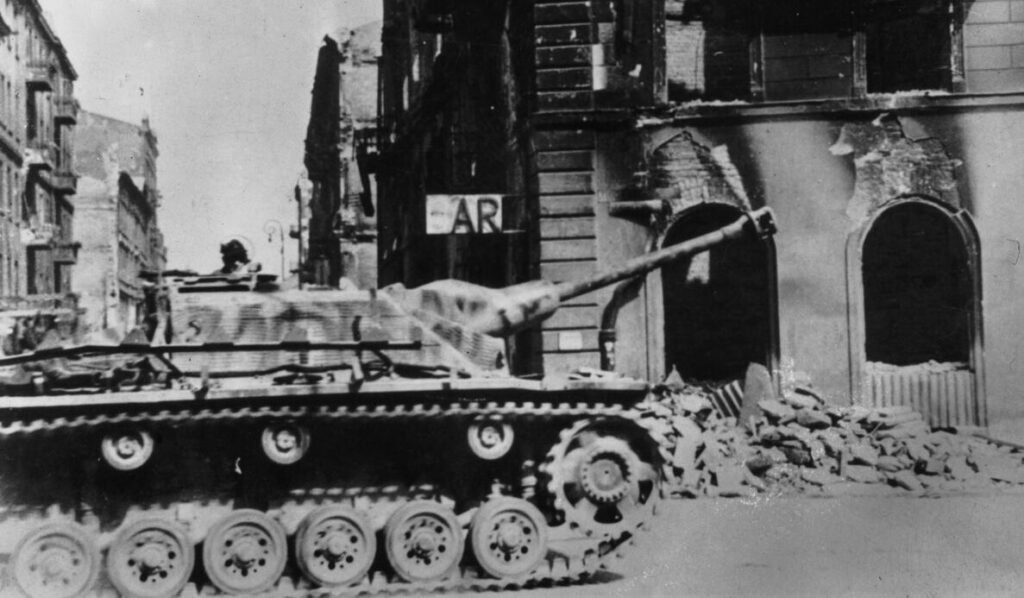Key Points:
- Poland and Germany’s complex relationship rooted in historical events, including World War II
- Resolution passed by the Sejm demanding acknowledgment of Germany’s culpability
- Legal intricacies surrounding reparations and waivers, including Poland’s concession in 1953
- Suffering endured by Polish victims of Nazi atrocities and the ongoing pursuit of reparation for individual victims
Poland and Germany remain ensnared in the shadows of their tumultuous past. Eighty-five years after the cataclysmic German invasion of Poland set ablaze the flames of World War II, the haunting inquiry of whether Germany bears responsibility to compensate its neighbor resurfaces, casting a spectral pall over their relationship.
You Can Also Read: ‘Russia Will Not Be Deterred by External Forces’, Putin’s Victory Speech
“Settling the bill would be historically justified,” declared Donald Tusk, the newly anointed Polish prime minister, as he embarked on his inaugural diplomatic voyage to Berlin in February’24. His words, laden with historical gravity, echoed through the halls of power, confronting German Chancellor Olaf Scholz with an unyielding call for accountability.
Tusk, a seasoned statesman and former European Commission president, acknowledged that Germany still grapples with its obligations. He acknowledged the unfinished business of moral and material compensation, yet tempered his demand with a plea to safeguard the future harmony between their nations from the poisoned chalice of past grievances.
The Political Weaponization of Anti-German Rhetoric
The stage for confrontation had been set earlier when Polish Foreign Minister Radoslaw Sikorski initiated a diplomatic overture in Berlin. He implored his German counterpart, Annalena Baerbock, to embark on a voyage of creative contemplation, seeking innovative pathways to address Poland’s wartime losses.
Yet, the clamor for reparation is not a novel refrain. For eight years, the previous right-wing nationalist government, led by the PiS party, wielded anti-German rhetoric as a political cudgel, a cynical gambit to rally domestic support.
Jaroslaw Kaczynski, the firebrand leader of PiS and former Prime Minister, tirelessly emphasized Germany’s unsettled historic debt. His government tabulated a staggering sum of over €1.3 trillion, encapsulating the agony of 2.1 million Poles subjected to forced labor, the territorial amputations inflicted by the Soviet Union, and the heartbreaking plight of 196,000 Polish children, cruelly stripped of their identity through forced Germanization.
In a watershed moment in September 2022, the Sejm, Poland’s parliament, passed a resolution demanding Germany’s acknowledgment of culpability. Even amidst political discord, there was a rare unity, with Tusk standing shoulder to shoulder with erstwhile adversaries in the pursuit of justice. Yet, within this unity lurked a subtle semantic rift. The word “reparations” was supplanted by “compensation,” a linguistic sleight exploited by Tusk’s detractors, seeking to tarnish him as a turncoat and puppet of Berlin.
The legal tapestry of reparations and waivers adds further complexity. In 1953, Poland relinquished its claim to reparations, a position upheld by legal luminaries in both nations. However, this concession does not mute the cries of individual victims of Nazi atrocities, whose pursuit of reparation remains unyielding.
Poland’s Quiet Push for Reparations Renewal
In the annals of diplomacy, whispers often carry more weight than declarations. In 2022, amidst the corridors of power, Poland dispatched a discreet diplomatic missive, shrouded in secrecy, to Germany and a consortium of global entities. The contents of this communiqué, veiled in mystery, remained shielded from public scrutiny, yet its implications would echo through the halls of history.
Unveiled in the aftermath, it surfaced that the note bore no mention of reparations, a conspicuous absence that stirred murmurs of speculation. Arkadiusz Mularczyk, steward of Poland’s Committee for War Reparations, ventured to Berlin in its wake, his entreaty for a parliamentary discourse on reparations echoing unheard in the chambers of the Bundestag, akin to a lone voice in a tempest.

With the winds of change sweeping through Warsaw, the embers of the reparations debate were reignited. In late February, amidst a solemn ceremony honoring the architects of a report on war damages, President Andrzej Duda castigated Donald Tusk’s acquiescence to waiving reparation claims as “a stain upon our nation.” His skepticism pierced the sanctity of Poland’s 1953 renunciation, a pact Germany views as sacrosanct.
Markus Meckel, sage of diplomatic intricacies, illuminated the shadows of history to reporters, unraveling the enigma of Poland’s reticence on reparations even post-German reunification. Drawing from the depths of his experience in the “2+4” negotiations, he elucidated the strategic wisdom in Poland’s erstwhile silence. Yet, he warned of the peril inherent in rekindling the flames of nationalist fervor, cautioning against the reopening of wounds long thought healed.
Crafting a Conceptual Framework for Compensation
On the dawn of January 22nd, a revelation emerged from within Poland’s foreign ministry. Wladyslaw Teofil Bartoszewski, the deputy minister, unveiled the inception of a conceptual framework for compensation. His lineage, etched in the scars of Auschwitz, imbued his words with a resonance that transcended mere rhetoric. As the torchbearer of a legacy of resilience, Bartoszewski’s endeavor found resonance in the stewardship of Marek Prawda, tasked with sculpting the contours of a vision that may pave the path toward healing the wounds of history.
Amidst the shifting tides of diplomacy, Berlin’s resonance emerges as a beacon of hope in the tempest of German-Polish relations. A spokesperson from the Foreign Office, shrouded in the cloak of diplomatic rhetoric, unveiled Germany’s willingness to partake in a constructive dialogue with Poland. This commitment, rooted in a shared imperative of remembrance and reconciliation, echoes a chorus of unity, resonating with the echoes of history yet poised to shape a future forged in collaboration.
Yet, amidst this conciliatory overture, Berlin remains resolute in its stance on reparations, deeming the chapter closed from their perspective. The echoes of Poland’s past losses, once reverberating through the corridors of power, now meet the resolute silence of historical closure.
A New Dawn for Bilateral Cooperation
The prospect of resumed bilateral government cooperation, long suspended amidst political tumult, now beckons on the horizon. The trilateral embrace of France within the Weimar Triangle signals a renaissance of diplomatic engagement, a testament to the enduring spirit of European unity amidst shifting sands.
In the hallowed halls of the Bundestag, Nyke Slawik, bearer of a poignant personal history, stands as an advocate for restitution and reconciliation. With her roots entrenched in both German and Polish soil, she articulates a vision of cooperation grounded in empathy and understanding. For her, the path to healing lies not merely in financial compensation but in the restoration of dignity and cultural heritage.
The reconstruction of the Saxon Palace in Warsaw stands as a tangible testament to this commitment, a symbol of resilience amidst the ruins of war. As the specter of Russian aggression looms large, Markus Meckel, echoing the sentiments of many, calls for a bolstered security partnership between Germany and Poland. In the face of external threats, solidarity emerges as a shield, woven from the threads of mutual support and shared values.
The topic of reparations, once fraught with discord and division, now finds itself reborn under a new guise – that of compensation. Berlin’s capitulation to engage in discussions, however arduous, signals a seismic shift in the diplomatic landscape.



